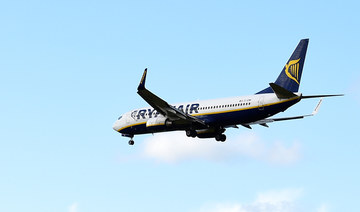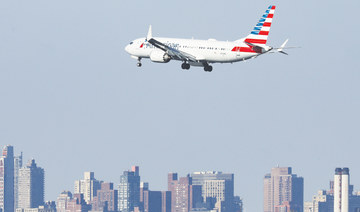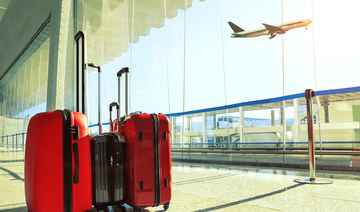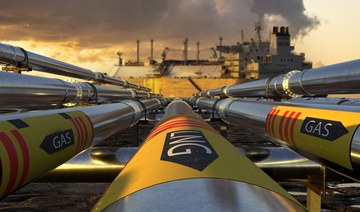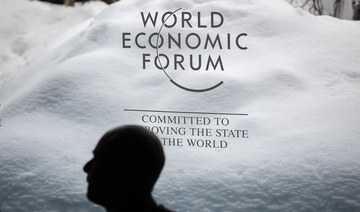NEW YORK: Boeing reported a second-quarter loss of $2.9 billion Wednesday as the grounding of 737 MAX following two deadly crashes continues to weigh on the company.
The loss, the biggest ever in a single quarter for the aerospace giant, follows last week’s announcement that Boeing would set aside $4.9 billion after taxes to compensate airlines for canceled flights and the delay in plane deliveries.
Revenues tumbled 35.1 percent to $15.8 billion, reflecting the hit from a halt to deliveries of the 737 MAX, a top-selling plane.
“This is a defining moment for Boeing and we remain focused on our enduring values of safety, quality, and integrity in all that we do as we work to safely return the 737 MAX to service,” said chief executive Dennis Muilenburg.
The 737 MAX has been grounded since mid-March following the March 10 Ethiopian Airlines crash, the second of two crashes that together claimed 346 lives.
Boeing is developing a software fix to address a problem with a flight handling system that was linked to both crashes.
Airlines have repeatedly pushed back their target dates for returning the jets to service as the regulatory timeframe has dragged on, most recently when the Federal Aviation Administration in June identified problems with microprocessor during simulator testing.
“Disciplined development and testing is underway and we will submit the final software package to the FAA once we have satisfied all of their certification requirements,” Boeing said.
Boeing has said it is targeting early in the fourth quarter to win approval from regulators.
The company, which has pulled its full-year profit forecast due to uncertainty about the MAX, boosted dividend payments in the second quarter. Compared with last year, Boeing spent $1.2 billion in dividends, up 20 percent from the year-ago period.
Boeing shares have lost more than 13 percent since the Ethiopian crash, a time period that has seen the broader S&P 500 gain more than nine percent.
But Boeing shares rallied following last week’s announcement about the $4.9 billion charge and an additional $1.7 billion in costs due to lower production levels of the 737 MAX.
Although the costs were higher than expected, analysts said investors were relieved that Boeing did not further cut production levels of the MAX and that the company still forecasts a return to service for the plane later this year.
The company is expected to be pushed for more details on its interactions with global regulators and customers during a conference call later Wednesday morning.
Boeing will also likely be probed on whether the 737 MAX crisis is diverting attention from other key programs, such as the development of a new middle-range aircraft sought by airlines.
Boeing on Wednesday pushed back the timeframe for first flights of the 777X, a new long-haul plane under development. It pointed to problems with the 777X engine, which is being built by General Electric.
The company said it is still targeting late 2020 for first delivery of the planes but said “there is significant risk to this schedule given engine challenges, which are delaying first flight until early 2020.”
Shares fell 0.9 percent to $369.42 in pre-market trading.
Boeing reports $2.9bn loss in Q2, biggest quarterly loss ever
Boeing reports $2.9bn loss in Q2, biggest quarterly loss ever
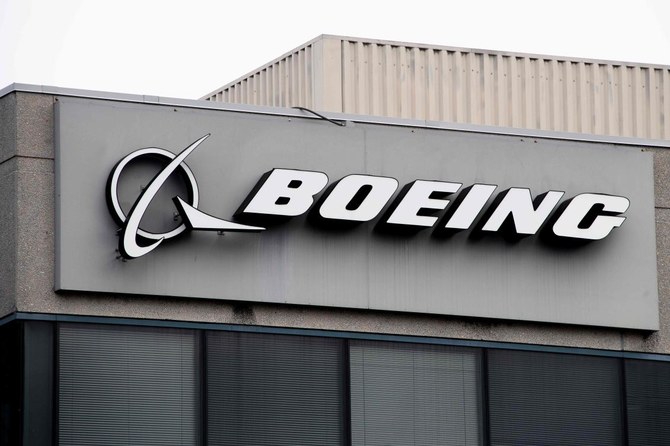
- Revenues tumbled 35.1 percent to $15.8 billion
- The 737 MAX has been grounded since mid-March following the March 10 Ethiopian Airlines crash
Egypt increases funding needed in 2024-2025 budget by over $59bn
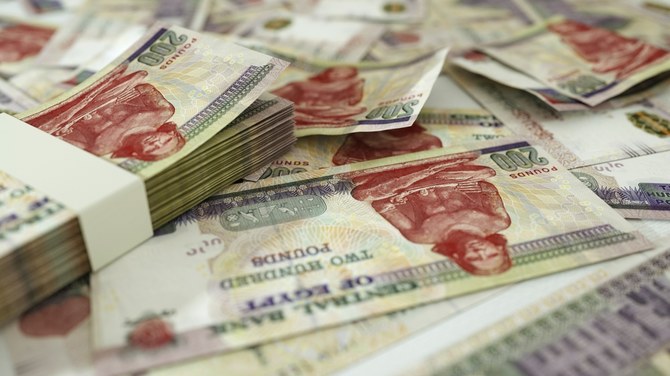
RIYADH: Egypt has increased the amount of funding required in its 2024-2025 budget by over 2.8 trillion pounds ($59 billion) following successive shock waves.
In the financial statement of the new draft budget, Minister of Finance Mohamed Maait highlighted that the changes are reflective of the continuous struggles that the North African country has been facing following the COVID-19 epidemic.
The added funding aims to alleviate the inflationary effects that have been burdening the Egyptian public, improve the standard of living, and meet the developmental needs of citizens, the report said.
The allocation of spending in the budget will also seemingly reflect the needs of individuals by increasing spending on health and education and aiming to improve job opportunities.
Egypt’s economy has witnessed blows over the last half year due to the ongoing crisis in Gaza, which has slowed tourism growth and cut into Suez Canal revenue, two of the country’s biggest sources of foreign currency.
Amid a staggering shortage of foreign currency and rapidly increasing inflation, the challenges prompted the International Monetary Fund to expand its financial support to Egypt to $8 billion in an attempt to shore up the country’s economy.
In a statement in March, the IMF board said its decision would enable Egypt to immediately receive about $820 million.
Similarly, the UAE, represented by a private consortium led by the Abu Dhabi Developmental Holding Co., signed a landmark agreement with Egypt in February to invest $35 billion in Ras El-Hekma, a region on the Mediterranean coast 350 km northwest of Cairo.
Since securing the deal, which marked the single largest foreign direct investment in the North African country, the nation launched some long-sought reforms with the central bank delivering a 600 basis-point interest rate hike and a pledge to unshackle its currency alongside a devaluation.
This led S&P Global Ratings to note that it has been encouraged by the rush of financial support to Egypt, therefore lifting its economic outlook for the country to positive from stable after the long-awaited currency devaluation, which is poised to ease foreign currency shortages.
Saudi Arabia’s aviation growth plays pivotal role in economic development: GACA president
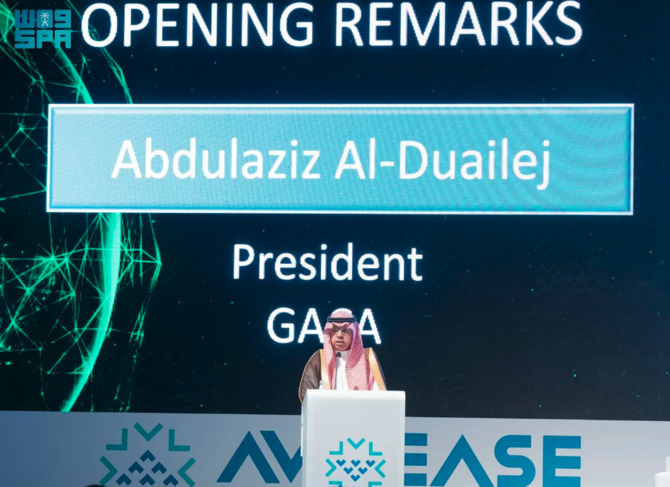
RIYADH: Growth in air traffic, heightened investment interest, and a comprehensive strategy are driving Saudi Arabia’s aviation sector expansion, according to a top official.
Abdulaziz Al-Duailej, president of the Saudi General Authority of Civil Aviation, highlighted the sector’s pivotal role in economic growth and sustainable development during his speech at the Airlines Economic Growth Frontiers conference in Riyadh.
Al-Duailej emphasized that Saudi Arabia is significantly advancing its civil aviation sector under Vision 2030 and the National Aviation Strategy, according to a report by the Saudi Press Agency.
The initiative aims to cement the Kingdom’s leadership in Middle Eastern civil aviation by enabling investments worth $100 billion by 2030 and leveraging private sector resources and expertise.
The strategy also outlines a holistic plan to upgrade airport services, airlines, and associated facilities, including cargo and logistics.
It aims to enhance the Kingdom’s global air connectivity through 29 airports, significantly grow passenger numbers, and establish Saudi Arabia as a premier center for cargo and logistics by 2030.
Al-Duailej pointed out the initiative’s focus on enabling competition and efficiency to stimulate investment and growth, overseeing its implementation, and ensuring compliance with regulations that provide safety, security, and sustainability.
He also highlighted the significant progress made in the aviation sector’s infrastructure and overall performance, driven by several undertakings launched by GACA.
These initiatives include massive investments that offer unprecedented opportunities for global aviation investors and operators.
He also mentioned a partnership between the public and private sectors to triple Abha International Airport’s capacity to accommodate 10 million passengers by 2030. The airport has already received interest from 100 companies to participate in this project.
Among the undertakings is the establishment of Riyadh Air, the launch of the master plan for King Salman International Airport in Riyadh, which aims to serve nearly 120 million passengers by 2030, and the opening of the Red Sea International Airport.
Moreover, Al-Duailej highlighted the launch of the National Air Connectivity Program to support the tourism and travel sectors in the Kingdom.
He also discussed significant investments in renewable energy and advanced air transport involving Saudia Airlines and NEOM, alongside substantial expansions by The Helicopter Co.
These efforts align with broader regulations promoting environmental awareness, ensuring balanced and sustainable growth for the aviation sector in the Kingdom in the long term.
Regarding passenger traffic, Al-Duailej revealed that the Kingdom saw a 26 percent increase last year, reaching a record 112 million travelers and surpassing 2019 figures by 8 percent.
In the first two months of this year alone, air traffic increased by 20 percent compared to the same period in 2023.
Another point of emphasis was the increase in air connectivity to nearly 150 destinations, with low-cost airlines driving growth between 2019 and 2023, thereby doubling their market share both domestically and internationally.
The Airlines Economic Growth Frontiers conference, hosted by AVILEASE, a subsidiary of the Public Investment Fund, aims to highlight opportunities within the civil aviation sector.
The event, held at the Four Seasons in Riyadh from April 22-23, saw the presence of the vice presidents of the GACA, representatives of the PIF, and numerous officials and industry stakeholders from around the world.
TotalEnergies, OQ to launch $1.6bn LNG Bunkering project in Oman
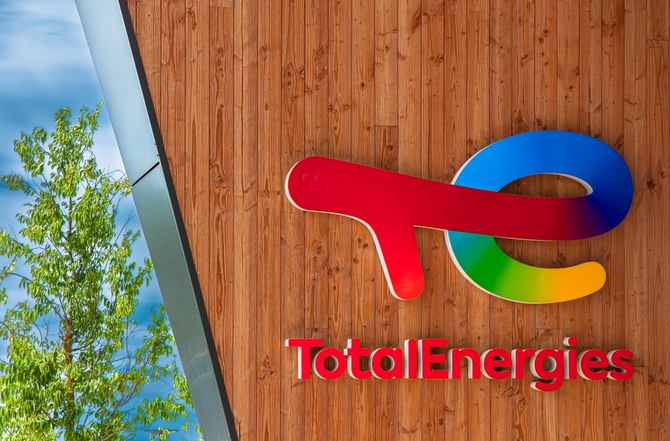
RIYADH: Oman’s Sohar Port is set to house a new $1.6 billion liquefied natural gas bunkering plant following an agreement inked between OQ and TotalEnergies.
Bunkering involves transferring LNG to a ship for use as fuel, offering a cleaner alternative compared to traditional methods such as marine gas oil and heavy fuel oil.
TotalEnergies will provide 80 percent of the investment, with OQ contributing the remaining 20 percent through their joint venture, Marsa Liquefied Natural Gas LLC.
The Marsa LNG project, the first of its kind in the Middle East, is poised to have significant economic implications. It’s expected to bolster Oman’s treasury revenues and enhance local value through collaborative local investments.
Patrick Pouyanne, chairman and CEO of TotalEnergies, said: “We are proud to open a new chapter in our history in the Sultanate of Oman with the launch of the Marsa LNG project, together with our partner OQ, demonstrating our long-term commitment to the country.”
He explained that the innovative project illustrates their pioneer spirit and showcases the relevance of their integrated multi-energy strategy, with the ambition of being a responsible player in the energy transition.
“By paving the way for the next generation of very low emission LNG plants, Marsa LNG is contributing to making gas a long-term transition energy,” Pouyanne added.
The plant, powered entirely by solar energy, is expected to contribute to the reduction of carbon emissions and the shipping industry’s overall carbon footprint. Notably, it is projected to emit less than 3 kg of carbon dioxide per oil equivalent barrel.
“The Marsa LNG project is one of the many initiatives that reflect Oman’s goal of achieving carbon neutrality by 2050,” Minister of Energy and Minerals Salim Al-Aufi said.
Minister affirms Riyadh as global solutions hub ahead of special meeting of World Economic Forum
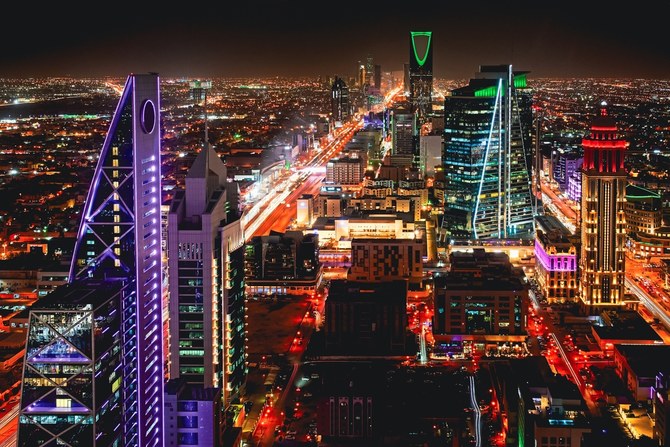
RIYADH: Riyadh has emerged as a beacon of “thought leadership, action, and solutions,” stated one of Saudi Arabia’s top officials as the Kingdom’s capital prepares to host the World Economic Forum.
Faisal Al-Ibrahim, the minister of economy and planning, made the comments ahead of the summit on global collaboration, growth, and energy for development, slated for April 28 to 29, which aims to empower leaders from both public and private sectors to tackle mutual global challenges.
According to the WEF website, the meeting will also advance key forum initiatives in the region and beyond as it aims to bridge the growing North-South global divide, which has further widened on issues such as emerging economic policies, the energy transition and geopolitical shocks.
“The Crown Prince’s patronage of the World Economic Forum Special Meeting in Riyadh is a testament to our leadership’s determination to convene the world to take action and expand global collaboration on the critical topics of our time,” said Al-Ibrahim in a post on X.
He welcomed global leaders to this pivotal moment for social, economic, and human development, urging them to “build bridges toward a secure, stable and sustainable future.”
Saudi Arabia’s Diriyah Co. unveils its mixed-use commercial office and retail offering Zallal
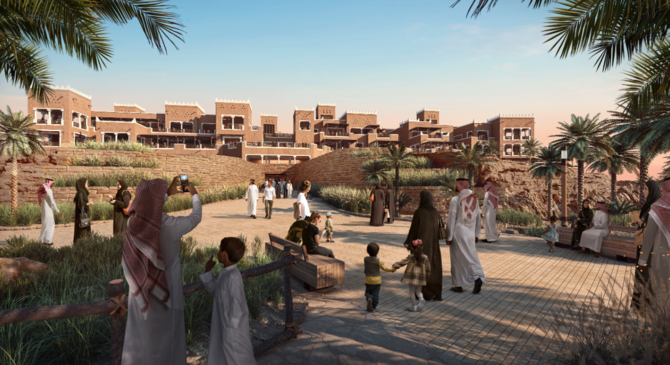
RIYADH: Saudi Arabia’s Diriyah Co. has shared plans for its inaugural mixed-use commercial office and retail development Zallal, set to launch in the Bujairi district during the first half of 2025.
This project will feature two low-rise office buildings with a combined leasable space of around 6,000 sq. m. Additionally, there will be 12 mixed retail and food and beverage outlets spread across about 8,000 sq. m.
Located next to the popular Bujairi Terrace, Zallal will benefit from proximity to a venue that attracts thousands of visitors daily.
The development is also located close to the recently completed Diriyah Art Futures and the soon-to-open Bab Samhan Hotel.
Jerry Inzerillo, group CEO of Diriyah Co, said: “We have been delighted with the hugely positive reception that Zallal has had from the commercial sector, and we are in advanced negotiations with international and local companies eager to benefit from the central location in the heart of Diriyah and the diverse range of accessible retail, F&B and office space available.”
He added: “With construction well underway, Zallal maintains the exciting momentum at Diriyah, and when open, will benefit from the thousands of daily visitors to Bujairi Terrace becoming the latest completed precinct in our rapidly developing masterplan.”
The company stated that prospective tenants have responded very favorably to the project, and advanced leasing negotiations are underway with several businesses and organizations.
Zallal will provide direct access to Wadi Hanifah and offer views of the UNESCO World Heritage site of At-Turaif from its position on the outskirts of the Saudi capital.
The ongoing construction work aims to integrate design elements that reflect Diriyah’s nearly 300-year history of traditional Najdi architecture.
Furthermore, Zallal will feature an underground parking facility offering direct access to Wadi Hanifah, Al Imam Abdulaziz bin Muhammad bin Saud Road, and public transportation options.
The facility is designed with convenience in mind, featuring designated coach drop-off points for tourists and visitors. This ensures a seamless transition to the pedestrian-friendly environment upon arrival.
Among the companies already involved in leasing negotiations are well-known international brands seeking to establish their presence in Saudi Arabia for the first time, the company said. Additionally, local companies and emerging Saudi concepts are also part of the leasing discussions.
In February, Diriyah Co. unveiled its plans to initiate construction on 11 new assets by the end of 2024, with the signing of two agreements on the sidelines of the Public Investment Fund’s Private Sector Forum.



